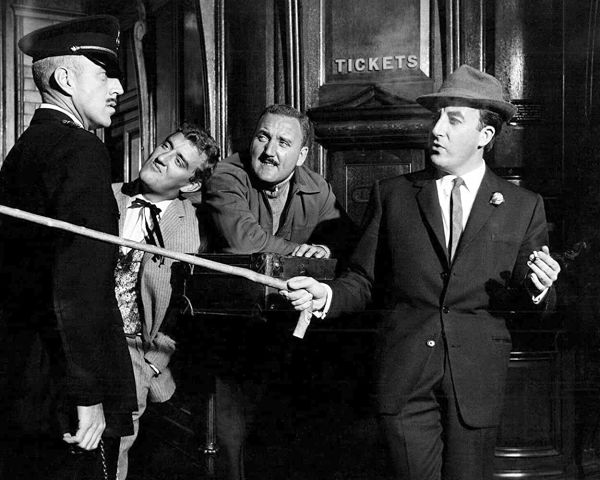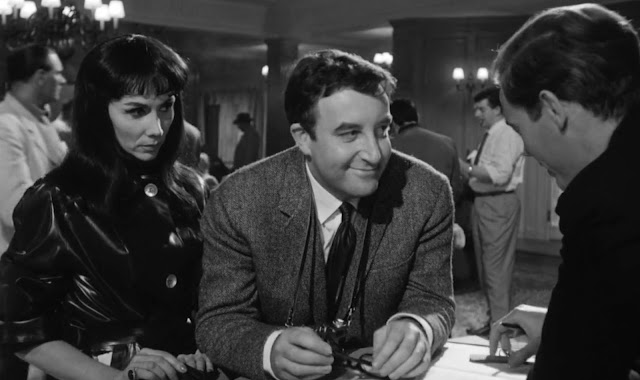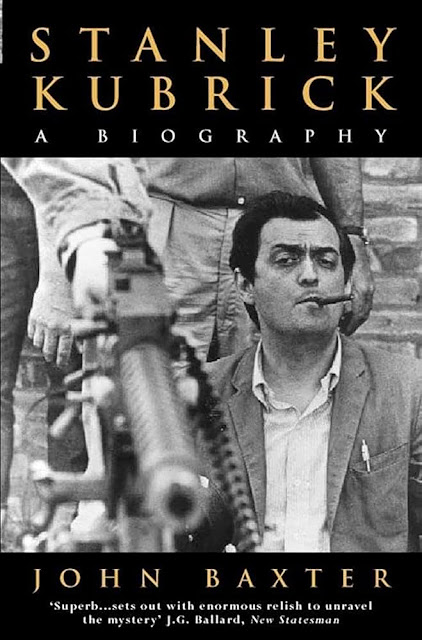The 12 Best Peter Sellers Films
Peter Sellers was one of the great comedy stars, and one of the great comic character actors, of the 20th century. Originally coming to prominence in the 1950s in the BBC radio series The Goon Show, his remarkable repertoire of voices soon found him coming to the attention of film makers.
At first Sellers was cast in supporting roles, before finding his niche in British films as a comic character star. Hollywood beckoned but, as is sometimes the case, found it didn't quite know what to do with him.
He did find success in his most famous film role, as the hapless French detective Inspector Clouseau in two films for Blake Edwards, The Pink Panther in 1963 and its 1964 sequel A Shot in the Dark. But he found himself stuck with the part for the rest of his life, having to return to the role again for another three films in the 1970s after his film career had foundered. For Sellers's best films and best performances, though, you generally have to look towards the pre-Panther years of his career.
Not all of Sellers's film characters were comic ones. Among the more serious roles he took on were in the underrated thriller Never Let Go in 1960, as the boss of a criminal gang, and in the bleak World War II drama The Blockhouse in 1973.
But while Sellers could be a perfectly decent serious actor, his real genius lie in his comic acting, in particular his ability to create a diverse range of character roles. Here is a rundown of the twelve best Peter Sellers films.
The Ladykillers (1955)
Peter Sellers took an early supporting role in The Ladykillers, one of the last of the celebrated comedies produced by Ealing Studios in the 1940s and 1950s.
Sellers plays one of a gang of shady criminals, led by Alec Guinness as Professor Marcus (or, more likely, "Professor" Marcus), and including Cecil Parker, Herbert Lom and Danny Green. The gang descend on the ageing and eccentric house of the equally ageing and eccentric Mrs Wilberforce (Katie Johnson), who they will use as a dupe in their security van robbery.
This very black comedy is one of Sellers's best early films, although he is inevitably upstaged in his supporting role by the wonderful Katie Johnson and the incomparable Alec Guinness.
The Smallest Show on Earth (1957)
This charming comedy stars Bill Travers and Virginia Mckenna as a young couple whose luck changes when they inherit a cinema. Sadly, it's not the grand city centre one they were expecting, but the cramped local fleapit, where the screen judders when trains go by and the films are even older than the staff. Among the employees they inherit are Bernard Miles, Margaret Rutherford and Peter Sellers. Sellers plays old Percy the projectionist and he makes a very creditable and believable old codger.
For more of Sellers's remarkable ability to play much older characters, check out culture clash comedy Battle of the Sexes from 1959, where he also gets to flex his Scottish accent.
 |
| Sellers as Fred Kite in I'm All Right, Jack |
I'm All Right, Jack (1959)
In the late 1950s, Sellers joined the informal repertory company of actors used by the Boulting brothers, as they worked their way through a series of satires on British institutions. Sellers first appeared in their diplomatic comedy Carlton-Browne of the F.O. (released as "Man in a Cocked Hat" in the US), before winning one of his best film roles in their industrial satire I'm All Right, Jack.
In this film Sellers plays obstroperous and not-too-sharp trade union shop steward Fred Kite, who dreams of a socialist republic and life in the USSR ("All them corn fields and ballet in the evenings ...").
The delicate balance between the unions and the management at his employer is disrupted by the arrival of an eager, but naive, new recruit played by Ian Carmichael. The stage is then set for a confrontation between the unions, led by Sellers, and the bosses led by Dennis Price, Richard Attenborough and Terry-Thomas, in a film that satirises laziness, ineptitude and corruption at all levels. A big critical and commercial hit in Britain, I'm All Right, Jack won Sellers the BAFTA award for best British actor.
The Mouse That Roared (1959)
Peter Sellers would take on multiple roles in the same film several times in his career, but this first effort was one of his most successful.
In The Mouse That Roared he plays Prime Minister Mountjoy of the tiny European Duchy of Grand Fenwick. He also plays the Duchy's female head of state, the Grand Duchess Gloriana, and the head of its armed forces, milquetoast "Hereditary Field Marshall" Tully Bascombe.
Witnessing the aid given to America's former enemies after World War II, Prime Minister Mountjoy cooks up a scheme to bring money into the Duchy by declaring war on the United States and then promptly losing. This will surely bring generous aid money into the country.
So Grand Fenwick sends a tiny military force wearing their medieval armour to cross the Atlantic, led by the mild but likeable Tully Bascombe. Once there they will look for someone they can surrender to. But the mission doesn't go quite according to plan, especially when Tully finds himself in possession of America's new top secret super weapon ...
 |
| With Lionel Jeffries, Bernard Cribbins and David Lodge in Two Way Stretch |
Two Way Stretch (1960)
This classic crime comedy sees Sellers play the leader of a trio of imprisoned crooks (with David Lodge and Bernard Cribbins) who devise a scheme to commit the perfect crime.
They will break out of prison, carry out a daring robbery, and then break back in again before anyone notices they have gone. This will obviously give them the perfect alibi. Unfortunately, a tough new prison warder, played by Lionel Jeffries, arrives and throws their scheme into doubt.
This strongly-scripted comedy sees Sellers underplaying nicely in the lead role, enough to let his co-stars shine as well - particularly Lionel Jeffries as the martinet prison warder and Wilfrid Hyde White as sly conman "Soapy" Stevens.
Only Two Can Play (1962)
This comedy-drama was scripted by Bryan Forbes and directed by Sidney Gilliat, and based on the Kingsley Amis novel That Uncertain Feeling. It casts Sellers as an unhappily married librarian with a wandering eye, who is tempted by a local councillor's glamorous wife, played by Mai Zetterling.
More grounded than many of Sellers's other comedies, this sees the star giving another well-judged character performance. His character is also Welsh, which gives him the opportunity to expand his range of accents. The film saw him nominated for a second BAFTA award as best British actor, following his win for I'm All Right, Jack.
Ironically, Sellers was convinced that the film was no good and gave up his profit participation, only to see it do well critically and commercially - something he never quite forgave it for.
 |
| Sellers with Marianne Stone in Lolita |
Lolita (1962)
Vladimir Nabokov's scandalous novel Lolita is turned into a black comedy in this film version directed by Stanley Kubrick. The film stars James Mason as Humbert Humbert, the middle-aged Englishman in America, who marries Shelley Winters because he secretly has designs on her teenage daughter Lolita, played by Sue Lyon.
This was Stanley Kubrick's first film in England, as funding was available to make it there, despite the story's American setting. Lolita was also the first of Peter Sellers's two films with Kubrick, and it finds him in a showy supporting role with an American accent and a range of disguises as author Clare Quilty, who becomes Humbert's rival for Lolita's affections. Sellers was rewarded with the first of his five Golden Globe award nominations for his performance.
The Wrong Arm of the Law (1963)
This lively crime comedy reunites Sellers with his Two Way Stretch co-stars Lionel Jeffries and Bernard Cribbins. Sellers plays London crime boss "Pearly" Gates, who has to team up with his criminal rivals (including Bernard Cribbins) and - even worse - with the police (led by Lionel Jeffries and John Le Mesurier) in order to turn the tables on a newly arrived gang of impudent crooks who are ripping them all off.
Not quite as good as Two Way Stretch, but still an amusing yarn, The Wrong Arm of the Law features a supporting role for a splendid - and rare - Aston Martin DB4GT, which was apparently Sellers's own car at the time.
Heavens Above! (1963)
This underrated comedy teams Sellers with the Boulting brothers again, for the last of their satires on British institutions.
Heavens Above! begins with the reliable and conservative Reverend Smallwood (a cameoing Ian Carmichael) being chosen as the new vicar of a conservative English parish. But a clerical error (heh) sees the wrong Reverend Smallwood (Peter Sellers) sent instead.
This Smallwood is a well-meaning but naive inner-city vicar, who soon finds himself clashing with his more conservative parishioners and causing chaos in his new job. Accent bonus: Sellers's character is from Birmingham, so he gets to add a Brummie accent to his repertoire.
 |
| Sellers as US President Merkin Muffley, one of his three characters in Dr. Strangelove |
Dr Strangelove: or, How I Learned to Stop Worrying and Love the Bomb (1963)
Dr. Strangelove is a Cold War black comedy that sees Sellers take on three roles in the story of a mad US Air Force general (Sterling Hayden) who sets the world onto a path to nuclear war.
Sellers plays the US President, the unfortunately named Merkin Muffley, an RAF officer, Group Captain Lionel Mandrake, and the President's sinister ex-Nazi scientific adviser Dr. Strangelove. Sellers was originally set to take on a fourth role (a US Air Force major) as well, but this part was eventually played by Slim Pickens after Sellers injured his leg in a fall on set.
The second of Sellers's two films with Stanley Kubrick, Dr. Strangelove is probably the best of his multiple role performances. The film saw him rewarded with a BAFTA nomination and an Academy Award nomination for best actor.
A Shot in the Dark (1964)
The obvious choice for an Inspector Clouseau outing would be the first film in the series, 1963's The Pink Panther. In truth, though, Clouseau is just a supporting character in that film and Sellers doesn't become the star of the series until the second film, A Shot in the Dark.
Happily, this is also the best of the Pink Panther films, finding Sellers as Clouseau mixed up in a murder mystery at a grand house, involving Elke Sommer and George Sanders. Also appearing is Herbert Lom at the start of his run of films as Clouseau's increasingly erratic boss Chief Inspector Dreyfuss. This is also the film with the in-joke that it features an appearance by a supposed young pop star "Turk Thrust" - who is actually the actor-writer-director Bryan Forbes.
Sellers returned to the role of Inspector Clouseau three times in the 1970s, in Return of the Pink Panther (1974), The Pink Panther Strikes Again (1976) and Revenge of the Pink Panther (1978). Blake Edwards, though, wasn't quite done with using Sellers and even cobbled together another film after his death, The Trail of the Pink Panther in 1982. This used out-takes of Sellers from the earlier films, something that brought a successful lawsuit from his widow, the actress Lynne Frederick.
Being There (1979)
After an unhappy decade in films of variable quality, Sellers made one last good one in the comic drama Being There directed by Hal Ashby.
Ironically, as "Chauncey Gardiner" Peter Sellers, the man who could play a multitude of characters, is required to a play a man with virtually none. The character's name, "Chauncey Gardiner", is in fact a mishearing of his explanation that he is "Chance the gardener", in a scene that sets up the film's premise that simple Chance and his uncomplicated ideas about gardening are mistaken by those he encounters for great wisdom and complex metaphors.
Although not quite Sellers's final film, it's often remembered as such, and saw him win a Golden Globe award and nominated for the BAFTA and Academy Awards for best actor.


I loved this epic post! I've never thought of myself as a Peter Sellers fan, but when I reviewed his filmography, I was amazed to see that I've never seen any of his films all the way through! I know I've seen parts of The Party, The Pink Panther, and Lolita, but I've identified several films from your post that I want to check out. I was given Dr. Strangelove on DVD as a gift, so that's definitely on my list, and I'm especially interested in The Ladykillers, The Smallest Show on Earth, and Heavens Above! Thanks for shining the light on these features!
ReplyDeleteOh well, you've got plenty to look forward to then. Dr. Strangelove is a no-brainer, but it's great that you want to check out some of the lesser-known films too. Lots of Sellers best performances are in some of those less famous ones in the late 50s/early 60s.
DeleteWonderful to see so many of his finest performances/films mentioned there, Jay. I think he's phenomenal in Never Let Go and Being There proving he was more than capable of handling much more serious material. I also like him in Hoffman, a strange film but he's fab in it. Maddy
ReplyDeleteNever Let Go is definitely underrated. Hoffman is an odd one. I don't think that would ever get made now ...
DeleteGreat post! You pretty much covered his best screen work. I might add Never Let Go and The World of Henry Orient to the list, though. BTW, I'm ashamed to admit that I haven't seen some of his early British movies like I'm All Right Jack or Two Way Stretch. I did watch Smallest Show on Earth, and I thought it was a lovely little movie.
ReplyDeleteThere's some good ones among those early films. There are some I didn't include, like Battle of the Sexes and The Naked Truth that are fun too. By the late 60s/70s he doesn't seem like the same actor at all
Delete